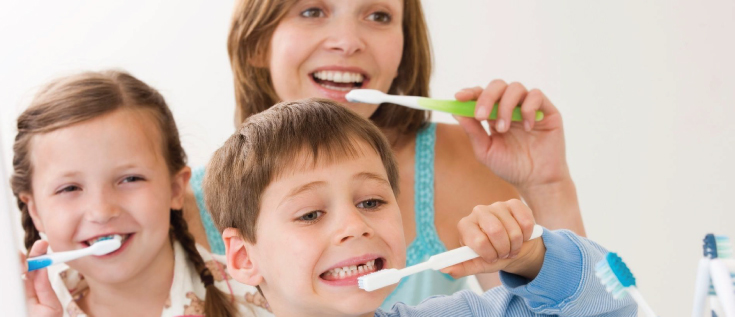
by Roseman Dental | Sep 7, 2022 | Dental 360, Dental Clinic Blog, Oral Health, Roseman Dental - NV, Roseman Dental - UT
Xerostomia is a big word with a simple definition: dry mouth. It’s the term for the absence of saliva in the mouth that can cause discomfort, often leading patients to seek medical treatment. The condition isn’t a disease in itself, but is actually caused by other factors.
While everyone experiences a dry mouth at one time or another, chronic dry mouth can not only be frustrating, but can also cause medical and dental issues. Treating xerostomia is important to improve overall quality of life as well as preventing any additional problems.
What Causes Xerostomia?
Many different issues can cause dry mouth. Some of the causes for this common condition include:
- Medications. Many over-the-counter and prescription drugs list dry mouth as a side effect.
- Nerve damage. Damage to the nerves that control saliva production can result in xerostomia.
- Cancer treatments. Chemotherapy drugs or radiation can halt the production of saliva.
- Other diseases. Parkinson’s or Sjogren’s syndrome can affect the salivary gland.
Other conditions, including stress and depression, can lead to a lower production of saliva as well.
What Problems does Xerostomia Cause?
Leaving xerostomia untreated can lead to further issues. The condition can cause difficulties with speech and eating, as well as an increase in cavities or infections in the mouth, since salvia helps wash away bacteria from the surface of the teeth.
What is the Treatment for Xerostomia?
To begin treatment for xerostomia, its root cause must be discovered. Eliminating the cause isn’t always possible, so dental professionals will find a treatment option that addresses the issue while not detracting from other medical care.
Some remedies can treat dry mouth, but they won’t cure it. These options include avoiding alcohol-based mouthwashes, using artificial saliva, sipping plain water, or using over-the-counter dry mouth products. Prescription medications can be used to stimulate saliva production in order to replace the saliva and prevent other medical and dental issues.
Dry mouth should be treated not only because of the discomfort it causes, but also because of the serious issues it can cause. Prioritize good oral care and regular dental treatments to prevent further problems. If you’re in need of dental care, make an appointment with Roseman Dental to get help from one of our empathic, patient-focused providers.

by Roseman Dental | May 11, 2022 | Dental 360, Dental Clinic Blog, Oral Health, Roseman Dental - NV, Roseman Dental - UT
One of the biggest advantages to living in the digital age is the overwhelming amount of information that is just a click away. However, with so much discussion regarding almost every topic imaginable, it is easy to understand why so many rumors and myths get passed around. Since the dental arena is not immune to perpetual misinformation, here are three common myths debunked:
Dental Myth #1
A fancier or more expensive toothbrush results in cleaner, healthier teeth.
The Truth
It is not the type of toothbrush you use, but the manner in which you use it that makes all the difference. Brushing twice a day for two minutes at a time is the key to healthier teeth and gums. This can be easily accomplished whether you opt to use a simple, soft bristle manual toothbrush, or a higher-end electric one. The most important factor is to be comfortable with your selection and use it on a consistent basis.
Dental Myth #2
The harder you brush, the better your results.
The Truth
Brushing your teeth harder does not improve your oral health. In fact, it can have potentially damaging effects! Excessive brushing with aggressive force can lead to enamel loss and gum recession, which can ultimately expose roots and cause sensitivity and tooth decay. If you are unsure if you are a harsh brusher, talk with your dentist so they can assess your routine and provide helpful suggestions. Part of an assessment by a dentist involves measurement and scoring of any potential gum recession. These measurements are taken at each visit and compared against each other to identify long-term recession.
Dental Myth #3
Regular brushing eliminates the need for regular dental cleanings.
The Truth
Plaque, a biofilm with a soft mashed potato-like consistency, begins to form on your teeth within 20 minutes after eating. If it isn’t brushed away within eight hours, it hardens into tarter that brushing cannot remove. Tarter build-up leads to gum disease and tooth decay. Only a dentist or dental hygienist will have the tools necessary to properly and effectively remove tarter from the teeth.
When it comes to oral health, false information can be damaging. The most important way to make your dental health a priority is by seeking out a reputable dentist who can dispel myths and provide you with the facts. Your mouth will thank you for it.
by Roseman Dental | Jun 19, 2015 | Dental Clinic Blog, Oral Health, Roseman Dental - NV, Roseman Dental - UT
There are more things you can do to whiten your teeth besides switch toothpaste, visit your dentist, and use whitening strips and trays. Even if you’re already taking these actions, there are several other steps you can take to brighten your smile without spending a lot of money.
Swap Your Toothbrush More Often
Trade out your old toothbrush for a new one every three months or whenever your bristles start to look faded and worn. Doing so ensures that your toothbrush is always providing the proper friction for scrubbing your teeth cleaner and whiter.
Avoid Eating Dark Pigment Foods
No matter how much you might like blueberries, marinara sauce, soy sauce and other dark foods, they aren’t doing your teeth any favors. Such foods can leave stains on your teeth thanks to their dark pigmentation. While not all dark foods are necessarily bad, it’s a good idea to limit how much of these types of foods you eat and make sure you enjoy them with plenty of water to help reduce the chances of staining.
Use Apple Cider Vinegar
While not as powerful as other whitening methods, rinsing with apple cider vinegar is a natural way to help brighten your smile (though perhaps not a very enjoyable one). To make the most of this tip, you’ll want to rinse your mouth out for a full minute with a mixture of one part apple cider and two parts water.
Avoid Drinking Energy Drinks
Besides dark foods, tea, coffee and red wine, energy drinks have also been known to cause staining on your teeth due to high acid content. Acid is also found in citrus fruits, so you’ll want to be careful of those as well. If you simply can’t go without your energy drink or soda, it’s better that you drink it through a straw to keep the liquid from coming into direct contact with your teeth.
Making a few small changes can do wonders not only for the color of your teeth, but for your overall oral health. Pay attention to the small signs that your teeth and mouth might be giving you about the state of your teeth to get a whiter smile and a healthier mouth.
by Roseman Dental | May 6, 2015 | Dental Clinic Blog, Oral Health, Roseman Dental - NV, Roseman Dental - UT
Your teeth are a part of physical health and overall appearance that many people take for granted. In fact, a lot of people might not notice oral health issues until they become major problems that take significant time and money to correct. Remember these oral hygiene basics to keep your teeth and gums in good shape between dental visits.
Brushing Teeth
Brush your teeth at least twice a day, or more if recommended by your dentist, using a soft-bristled brush and toothpaste with fluoride in it. If you are prone to plaque build-up, consider an electric toothbrush, which is often better at removing plaque than manual brushing.
Flossing Teeth
Floss daily to clean between teeth and under the gum line. Break off about 18 inches of floss each time, and wrap the excess around your fingers to help you hold it steady. Work the floss in between your teeth one at a time, then curve the floss to help you clean against the sides of each tooth that are touching.
Other Oral Hygiene Tips
Consider using a fluoride mouthwash every day to remove bacteria in the mouth. There are also a number of specialty products available such as the oral irrigator, a device that uses a stream of concentrated water to remove food particles from between teeth. This device can be safer and less damaging to gums than using floss for the same purpose if your dentist has recommended that floss may be harmful to your gums.
Oral Hygiene Red Flags
Keep an eye out for red flags that indicate you should see a dentist as soon as possible:
- Red, swollen or bleeding gums are a major sign of gum disease, which can lead to tooth loss if left untreated
- Loss of or damage to a tooth should also be examined by a dentist, even if the tooth is only chipped or cracked and doesn’t hurt that badly
- Other changes you notice like unusual sensitivity to temperature should be reported to an oral health provider
The key to healthy teeth and gums is to establish a daily routine. These tips work best when you do them regularly.
by Roseman Dental | Apr 29, 2015 | Dental Clinic Blog, Oral Health, Roseman Dental - NV, Roseman Dental - UT
When you were a child, the importance of brushing and flossing your teeth on a daily basis was probably something you heard often. Almost always the focus was to keep your teeth clean to avoid cavities and the build-up of plaque, but have you ever thought that the effects of bad oral hygiene could lead to something as serious as oral cancer?
Oral Hygiene and Cancer
The American Journal of Epidemiology published a 2007 study linking neglected mouth hygiene, to head, neck and oral cancers. Researchers have found that over 3,400 U.S. adults who ranked their own personal oral hygiene as “poor” to “fair” have a higher chance of acquiring an oral infection with human papillomavirus (HPV). The U.S. Centers for Disease Control and Prevention state that approximately 12,000 cases of oral cancer occur in the U.S. each year. The presence of HPV is thought to cause close to 75 percent of these cases.
Reduce Your Risks of Oral Cancer
Here are some ways to improve your oral hygiene to prevent or reduce the risk of oral cancer.
- Make it a habit to brush and floss your teeth after every meal. Participating in both brushing and flossing will remove unwanted plaque and leftover food from your teeth and gums, resulting in less decay.
- Avoid or limit the use of tobacco and alcohol products to improve your oral hygiene. Using tobacco products means you have a 27 times greater chance of being diagnosed with oral cancer over an individual who never uses tobacco.
- Visit your dentist at least twice a year, and more often if you are at high risk or the dentist recommends more frequent visits. Allowing your dentist frequent access to your mouth gives him or her many opportunities to spot any signs of oral cancer early on. Just like with any cancer, the earlier it is diagnosed the easier it is to treat.
Protect Yourself from Oral Cancer
Poor oral hygiene can lead to cavities, broken teeth, and gum disease, which can contribute to oral cancer. Following these tips can help protect you against oral cancer and all of the stress and worry that comes with this disease.




